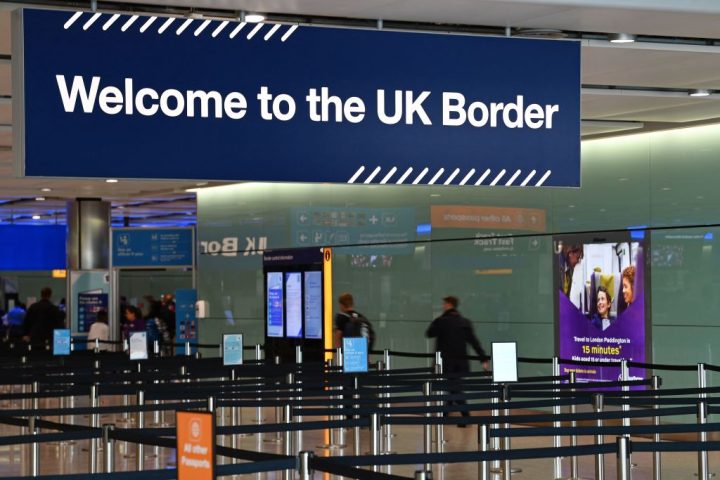Why can’t we seem to distinguish between good and bad migration? Brexit allowed the government to do what the Leave campaign had repeatedly said it wanted: to create a points-based system which would turn away Romanian Big Issue sellers and welcome Indian surgeons. But now we have that system we don’t seem to like that either.
True, the government has failed on illegal migration. The boats continue to arrive, bringing their cargo of mostly young males, some of whom we then put up in four star hotels at vast expense. It is pretty clear that a very large proportion of them are economic migrants rather than genuine refugees, yet our sluggish asylum system seems unable to deport them even when their claims are exposed as fraudulent. A depressing example was the 2021 case of failed Liverpool hospital bomber Emad Al Swealman, who had lost his asylum case years before but had been allowed to stay nonetheless as he reinvented himself as a bogus Christian in order to have another go. The failure to tackle such abuses, and the people-traffickers who enable them, is a disgrace.
There are some very simple ways to manage migration so it can serve our economy without being a burden
Yet should we really be so worked up that net migration last year reached 745,000? The Home Office is proposing to respond to the figures by doing away with the shortage occupation list, which allows employers to bring in workers who they cannot otherwise source in Britain. Boris Johnson and Suella Braverman have both called for the salary threshold for migrants to be granted work visas to be raised from £26,000 to £40,000.
Don’t we want our industries to thrive, to have the skills they need? The real burden on the economy is Britons who have been signed off on sickness benefits, not self-supporting migrant workers earning over £26,000 a year. Raise that to £40,000 and it would almost completely shut off, for example, the arts from ever hiring foreign staff again.
Moreover, why would anyone want to cut off one of our most successful export businesses by doing as some have demanded and blocking foreign students – who form the single biggest group among migrants? Yes, foreign students really are exports – while they may be physically entering the country it is the direction in which their money flows that matters.
It is true that the government has failed to prepare for net migration of 745,000. Our housing stock, for example, is not increasing at anything like the rate it would need to cater for such a population increase. But without overseas bricklayers, plumbers and other tradespeople working in areas of short supply we would have even fewer homes.
There are some very simple ways to manage migration so that it can serve our economy without being a burden. Keep the salary cap where it is – and possibly lower it in cases where employers can show that they will be providing accommodation for the migrant workers. That would allow, for example, farms and hotels in remote areas to bring in the staff they need. Secondly, ensure that employers have an incentive to look for UK workers before they look abroad by lowering employers’ national insurance contributions for UK citizens by a few per cent and increasing it for workers coming from overseas (at least for a period). Thirdly, stop worrying about foreign students, who are paying large sums for their courses and are helping to create jobs for the higher education sector – as well as having very modest housing requirements.
And while we are at it, let’s finally tackle illegal migration. We can do that by speeding up asylum applications and rapidly expunging chancers whose applications have failed, as well as tackling the scourge of an ever-rising population of out-of-work Brits. It is they who are the burden on the state.







Comments